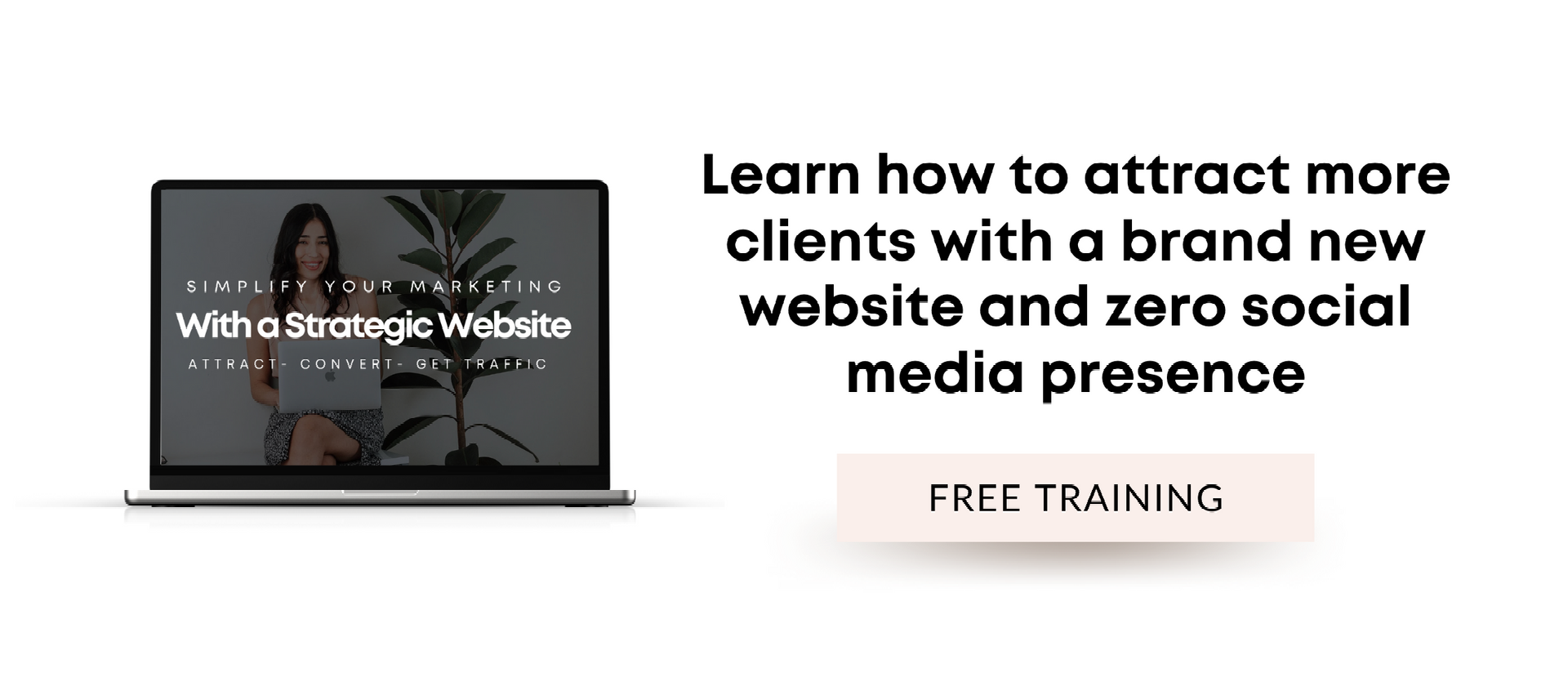Your Dilemma Answered: Organic vs Paid Traffic?
When it comes to driving traffic to your website, choosing your organic or paid traffic strategy may be a struggle. Do you focus on growing your organic traffic through compelling content and SEO, or do you invest in paid strategies to get immediate results? In this comprehensive guide, we'll explore the world of website traffic and help you make an informed decision.
What is website traffic?
Website traffic refers to the number of visitors your website receives. It's a crucial metric because more traffic often translates to more potential clients and, ultimately, more business success.
What's the best website traffic strategy?
Choosing between organic and paid traffic depends on various factors, including your lifestyle and budget. Let's delve into both options to help you make an informed decision.
What is organic traffic?
Organic traffic comes from sources where visitors find your website naturally. These sources include:
Organic Search and Blogs
By creating valuable, SEO-optimized content, your website can rank well on search engines like Google. When users find your content through search results, it's considered organic traffic.
Social Media Engines like YouTube and Pinterest:
When your content is discovered through platforms like YouTube or Pinterest, it's organic traffic. Users find your content because it aligns with their interests.
Podcasts:
If you have a podcast that drives listeners to your website, this is another form of organic traffic. It's particularly effective if your podcast content resonates with your target audience.
What is paid traffic?
Paid traffic, as the name suggests, involves investing in advertising to drive visitors to your website. These sources include:
Social Media Ads:
Platforms like Facebook and Instagram offer advertising options that allow you to target specific demographics and interests.
Search Engine Ads:
With search engine advertising, you bid on keywords to have your website appear at the top of search results. Google Ads is a common example.
Press Ads or Collaborations:
Collaborating with other websites, influencers, or press outlets can lead to paid traffic. You pay for these partnerships, which can result in visitors finding your website.

What's the difference between direct and organic search traffic?
Direct traffic occurs when visitors enter your website's URL directly. They already know about your brand. Organic search traffic comes from search engines, indicating that users found your content through a search query.
Does paid traffic increase organic traffic?
While paid traffic and organic traffic are separate, the truth is that paid traffic does not increase organic traffic by magic. Here’s an in-depth guide that explains how ads don’t directly increase organic traffic.
The Importance of diversifying your traffic sources
Relying solely on one type of traffic can be risky. Both organic and paid traffic have their merits, and using a combination of both can be a game-changer.
Imagine you've put all your eggs in one basket—relying solely on organic search traffic. While it's a great source of visitors, algorithms change, and your rankings can fluctuate. What if a new competitor enters the scene and outpaces you in search results?
On the other hand, putting all your resources into paid traffic can be costly, especially for when you’re starting out. As soon as you stop running paid ads, your traffic may go down significantly.
By diversifying, you create a safety net. If one source of traffic experiences a dip, the other sources can compensate. It's a strategy that minimizes risk and maximizes your reach.
The synergy of organic and paid traffic
When used in together, organic and paid traffic can complement each other. Your high-quality, SEO-optimized content can attract organic visitors who are genuinely interested in your offerings.
Paid traffic can give your content an initial boost and attract new eyes to your website.
Additionally, you can target specific audiences with paid traffic, ensuring that your ads reach the right people. This can be particularly beneficial when you're launching a new product, service, or campaign.
Investing in SEO for the long run
While paid traffic can provide quick results, it's often short-lived. Once you stop paying for ads, the traffic stops. Organic traffic, driven by solid SEO practices, offers long-term sustainability.
By optimizing your website for search engines, you create an asset that keeps attracting visitors over time. It's an investment in the future of your business.
In the ongoing debate of organic vs. paid traffic, there's no one-size-fits-all answer
The best strategy depends on your specific goals, budget, and audience. Consider a balanced approach that combines both strategies to maximize your website's reach and effectiveness.
Ready to learn more about building your website strategy?
Join my Website Strategy Workshop, where you'll gain the insights and tools you need to optimize your simple sales funnel.
Remember, the traffic game is ever-evolving, and staying informed and adaptable is key to your website's success.
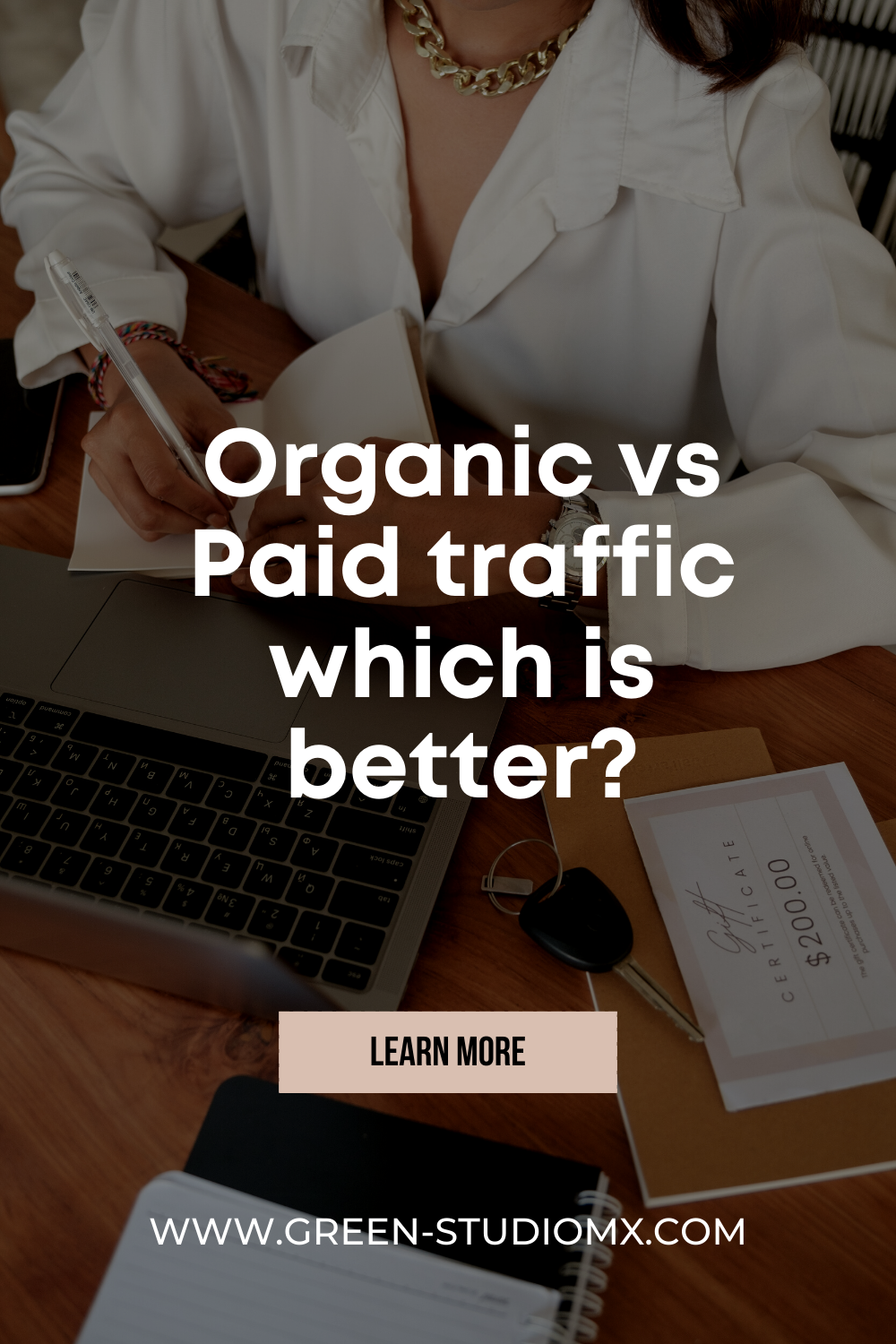
* AI Disclosure: This content may contain sections generated with AI with the purpose of providing you with condensed helpful and relevant content, however all personal opinions are 100% human made as well as the blog post structure, outline and key takeaways.
* Affiliate Disclosure: Some of the links on www.nataliamaganda.com may contain affiliate links meaning that I will get a commission for recommending products at no extra cost to you.
WELCOME
Hello! I'm Natalia. Latina, web design expert for mental health professionals.
I help ambitious life coaches, therapists and holistic leaders amplify their magic, gain visibility, and simplify their marketing efforts through strategic web design and content.

Need a new website? Book a free power hour
What we will talk about: The best website strategy for your unique private practice or coaching business
Launch a website and grow your traffic in the next 12 months
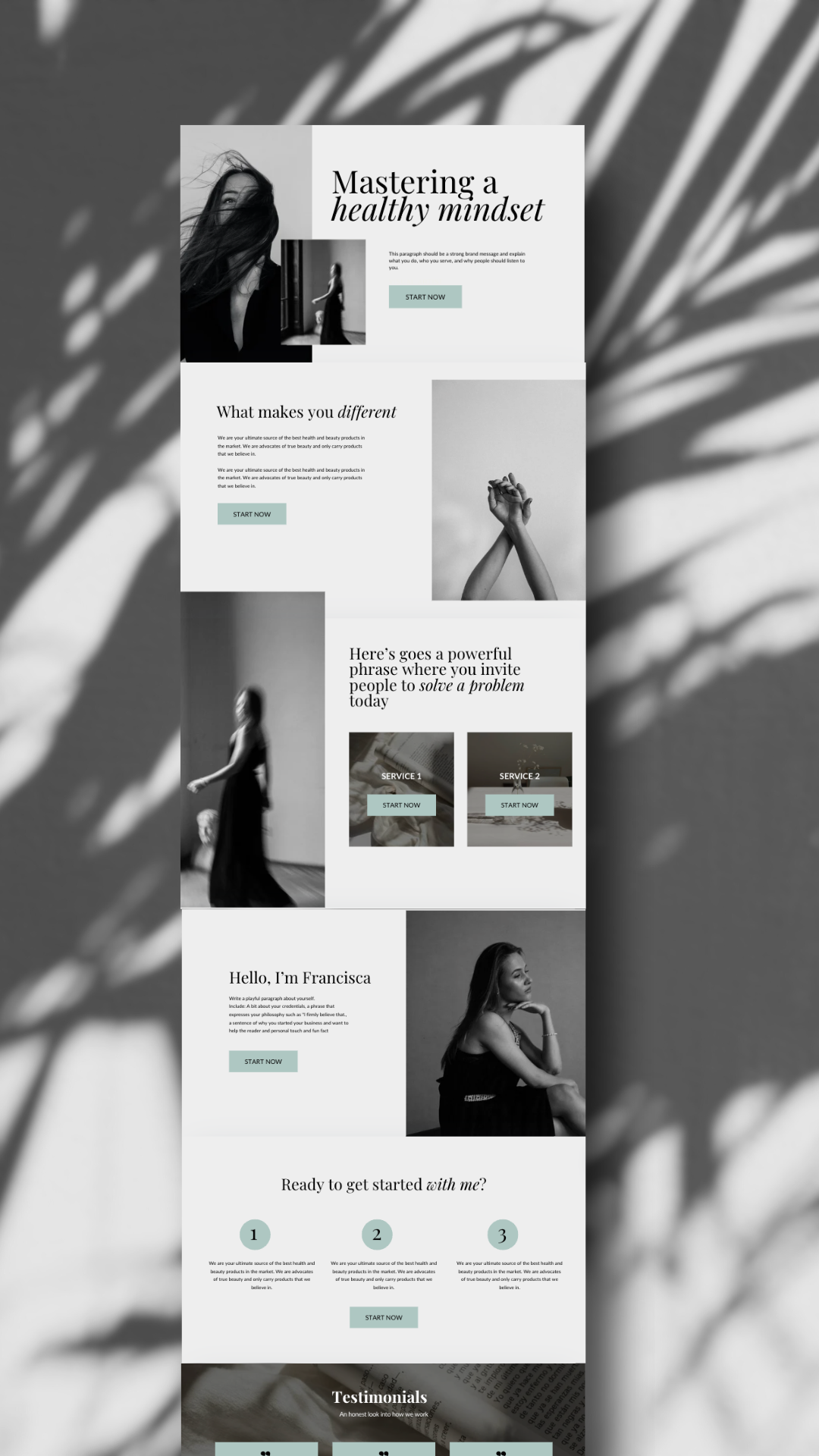
Slide title
Write your caption hereButton
Slide title
Write your caption hereButton
Slide title
Write your caption hereButton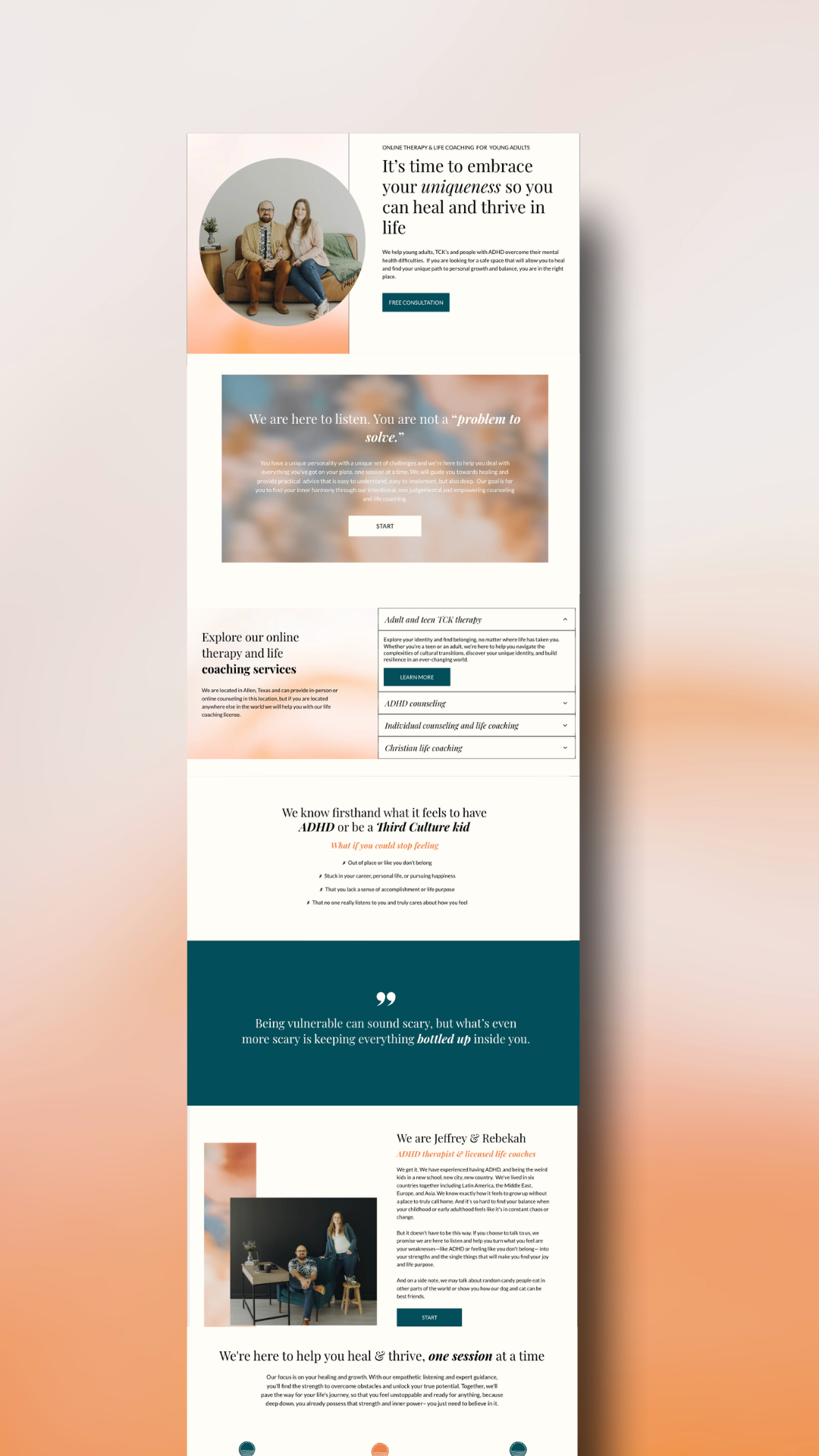
Slide title
Write your caption hereButton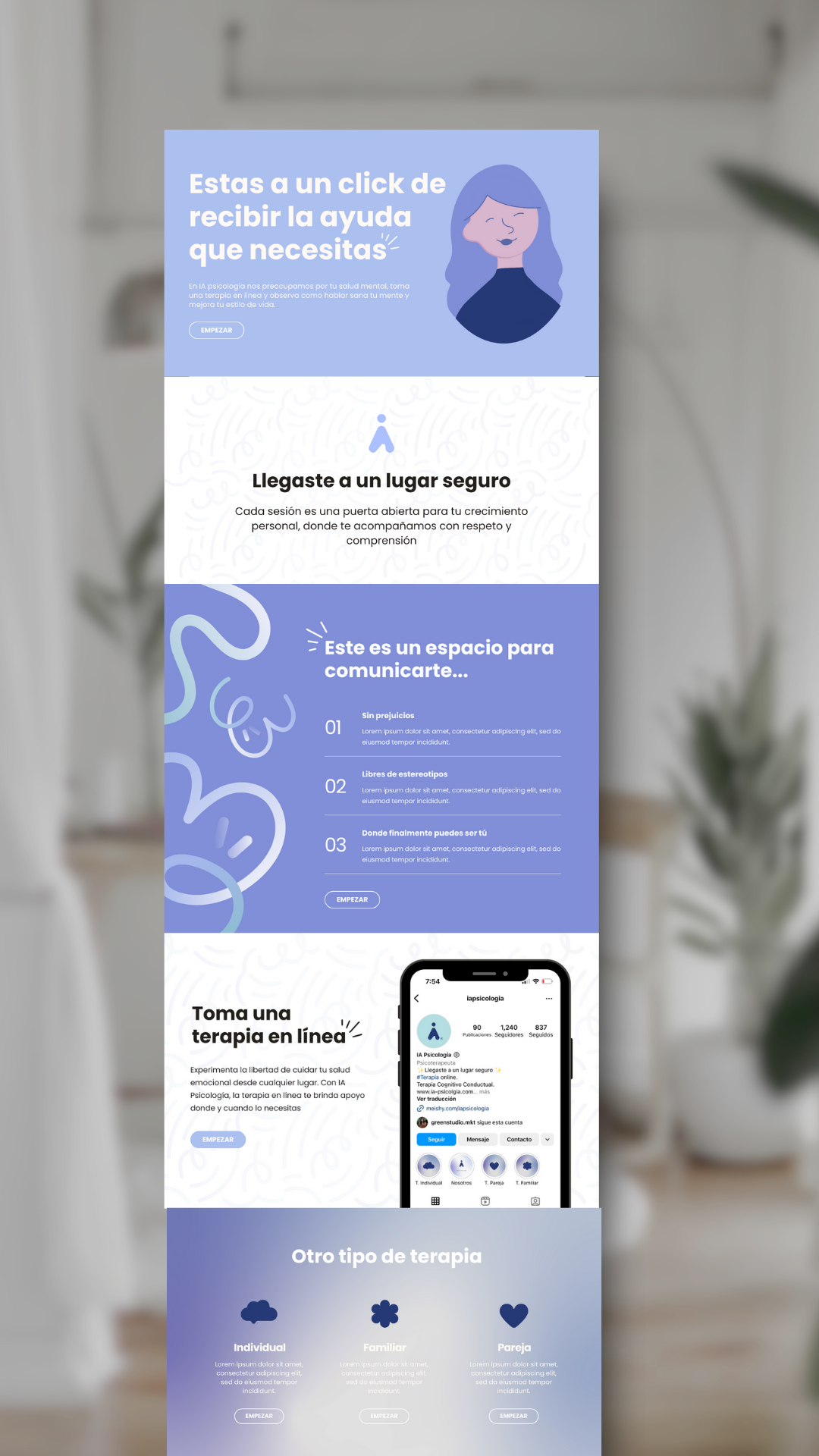
Slide title
Write your caption hereButton
Slide title
Write your caption hereButton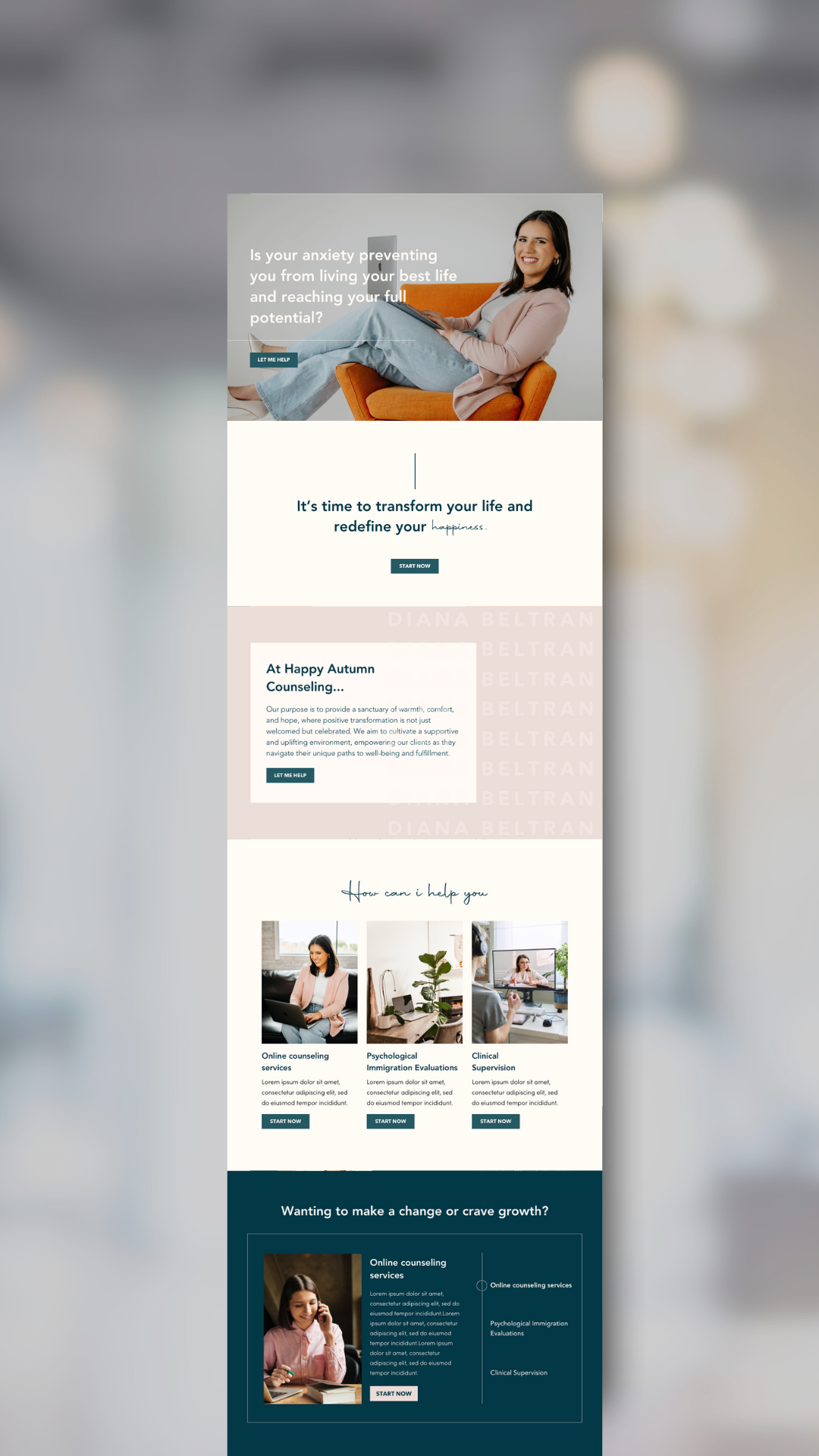
Slide title
Write your caption hereButton
If you loved this post you're gonna love these:
BTW, I'm Natalia
Web design expert and SEO nerd
I’ve built an online business which has allowed me to double my income, and quit my full time job all thanks to one thing!
MY WEBSITE!
After serving +100 clients and students across several industries, handling blogs and writing professional copy for clients, I know the ins & outs of building a website that attracts and writing content that converts.
How much should your website & a sustainable traffic plan that brings in monthly leads be costing you as a private practitioner or holistic coach?
Join my slow Saturday newsletter
A weekly reminder to slow down, enjoy life and build your mindful business one day at a time.
How much should your website & traffic plan be costing you for getting monthly leads ?
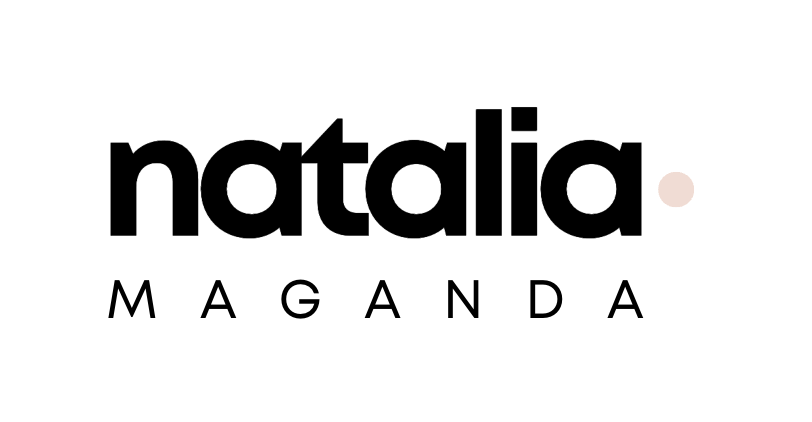
Bilingual strategic web designer for mental health professionals, life coaches & holistic practitioners. We are located in Mexico serving USA & Worldwide. Contact | Become a collab partner | Become an affiliate or referral
Natalia Maganda - Privacy Policy

